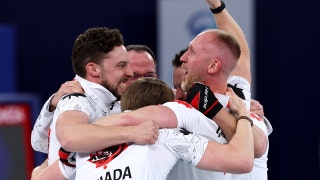(SportsNetwork.com) - Joe Paterno. Tony Dungy. Dennis Green. Kirk Ferentz. Ted Marchibroda. Joe Philbin. Joe Lee Dunn. Willie Shaw. Yes, the list can go on.
When people, especially potential recruits, want to know why Earnest Wilson III believes he will get different results as Savannah State University's head football coach than plenty of predecessors, he can point to his many coaching influences.
It's an impressive list of coaches whom he worked under or alongside, or simply has drawn off.
"With any type of business, you've got to have a vision, you have to sell that vision to them," Wilson says. "I just say, 'Look at my background.'"
The 50-year-old Wilson's background suggests he can slow, perhaps end Savannah State's longstanding struggles. He was part of a national championship-winning staff in his very first season as a college coach - at NCAA Division III Allegheny back in 1990. He's learned plenty since then to be entering his 26th season on the sideline.
But Savannah State continues to struggle as much as any FCS program, and coaches who have come and gone at Georgia's oldest public historically black university surely felt they would be the difference maker that Wilson believes about himself. The Tigers had plenty of success on the Division II level in the 1990s, but since moving to Division I in 2000, they have had only one season with more than two wins, and they are a mere 1-23, including 0-16 in the Mid-Eastern Athletic Conference, through Wilson's first two seasons on the job.
"I was talking to (Air Force coach) Fisher DeBerry on the phone one day about two weeks ago," Wilson relayed, "and I said, 'Is there anything you can tell me about being a head coach?' And Fisher DeBerry said, 'I have one rule for 20-something years: Do things right.'"
To Wilson, that means analyzing, then rebuilding. He asked to conduct that process when he interviewed for the job.
The initial results don't reflect much, but the 1989 Texas Tech graduate likes his program's young talent for building around.
Perhaps no program is due for patience quite like Savannah State. Presumably, Wilson makes it through his third season this year. If he does, it will mark the program's longest head coaching run since Bill Davis from 1986-92.
Davis later came back to lead Savannah State for its first two seasons on the Division I-AA level (now FCS), producing back-to-back two-win campaigns, before he died in the 2002 offseason.
Savannah State hasn't had a winning season since 1998. Wilson will need to start making a dent in the win-loss column because that eventually becomes the bottom line. Last year, the Tigers went 0-12 and had the lowest attendance average in the 11-team MEAC, averaging 2,763 fans in an 8,500-seat stadium.
"I knew that the program was down. I didn't know how bad it was down," said Wilson, who was coaching in the MEAC in 2012 as Hampton's offensive coordinator when the Savannah State position opened up yet again.
"There's been a big disconnect from the Division II team in the '90s and when they had the transition to begin an FCS program, and especially, what, 13, 14 years later? They kept hiring people that might give them a win or two, but never really built a base. And that's what I'm trying to do, I'm trying to build this program a base."
This year, Savannah State was not allowed to have spring practices, the result of subpar Academic Progress Rate scores, which the NCAA uses to measure the classroom performance of a team over a four-year period.
Still, past MEAC teams have had success after losing spring practices, and the wheels of progress are in motion at Savannah State, both on and off the field. Players have been working out on their own and committing to the team's offseason training regimen. Wilson has challenged himself and his staff to improve with Xs and Os and with guiding their players toward improvement.
"There are a lot of things you can do to improve yourself. Hopefully, you'll be a more effective teacher when you hit the field next fall," Wilson said.
The Tigers' defense figures to be ahead of the offense with the return of junior outside linebacker Marquis Smith and the likes of tackles Jovanta Mobley and Conner Christian.
The Tigers were outscored by an average of 35 points last season, and the quarterback position never had consistency in an offense that thinks pass first yet managed only 1,888 passing yards over 414 attempts. The Tigers have a terrific weapon in wide receiver Kantrell Frazier; they just need someone, perhaps freshman David Handler or Caleb Cox from this year's recruiting class, to get him the football.
Intense, yet a player's coach, Wilson does a fairly good job of keeping a sense of humor during his program's growth process. At his introductory news conference two years ago, he put on a Savannah State cap that was too big for him and joked that he looked like Elmer Fudd.
His football budget is low - he doesn't have both an administrative assistant and a director of football operations, uncommon for Division I - but Georgia is a hotbed for high school talent, and Savannah State's vibrant campus and the beautiful city can sell themselves.
Also, beginning this fall, in-state tuition rates have become available to incoming freshmen in the surrounding states of Alabama, Florida and South Carolina, and that will open up recruiting circles on an FCS level in which scholarships can be split into partial units beyond the maximum of 63.
"We have so many young freshmen, but they're more pumped up now than previous seniors who have lost before," Wilson said.
"I've been fortunate enough to win a national championship, go to bowl games in Division I, so your dream is always to be competitive on a national level.
"I've been through it before. I've had 25, 26 years of coaching. I remember Ken O'Keefe, he was one of our coaches at Allegheny over in Pennsylvania. We won the national championship, we won 24 straight games, and he said one thing you have to know is how to win and you have to know how to lose. One time, Joe Paterno said the same thing to me."
Savannah State has done plenty of losing on the FCS level. Now Earnest Wilson and his assistant coaches are hoping to turn the lessons learned into a revitalized program.








































